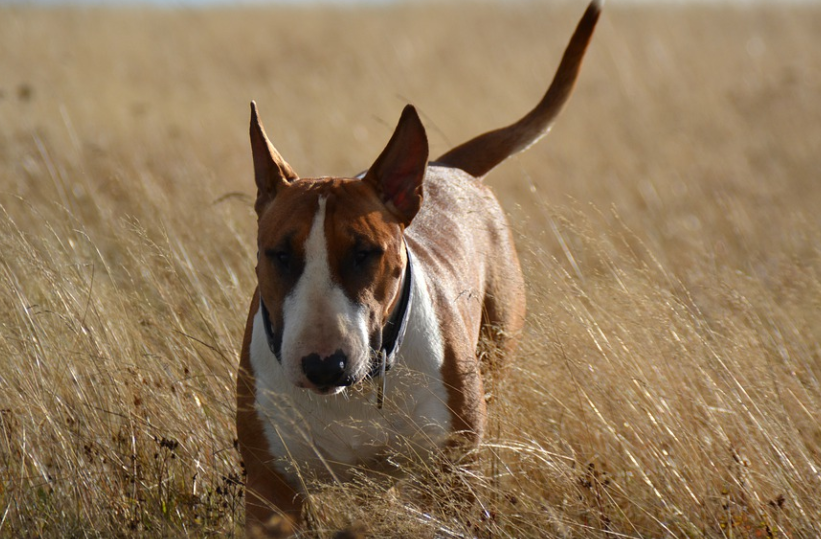Do English Bulldogs Lock Their Jaws?
Have you ever seen an English Bulldog and wondered if it could really lock its jaws? It’s a common belief that these lovable pups will latch on and never let go. But the truth is much more interesting than that.
Do English Bulldogs have a secret superpower? In this blog post, we’ll explore why English Bulldogs don’t lock their jaws, as well as other characteristics that make them such special companions.
Let’s take a closer look at the anatomy of the English Bulldog.
What Is Lockjaw In French Bulldogs?
Contents
- 1 What Is Lockjaw In French Bulldogs?
- 2 Do English Bulldogs Lock Their Jaws?
- 3 Do English Bulldogs Have Strong Jaws?
- 4 Why Do Bulldogs Lock Their Jaws?
- 5 How to Diagnose Lockjaw in English Bulldogs?
- 6 How to Prevent Lockjaws in English Bulldogs?
- 7 Do English Bulldogs Bite Hard?
- 8 What Is the Jaw Strength Of The English Bulldog?
- 9 Conclusion
You may be concerned about the possibility of them developing lockjaw. Lockjaw is a medical condition caused by the tightening of the jaw muscles, making it difficult for a dog to open and close their mouth.
Unfortunately, English Bulldogs are particularly prone to this disorder due to their short, wide skulls and strong jaws.
The symptoms of lockjaw include difficulty opening the mouth, drooling, teeth grinding, and visible tension in the jaw muscles. If left untreated, it can lead to seizures or even death.
The exact cause of lockjaw is unknown, but it is believed to be caused by an infection or trauma to the jaw muscles or nerves, a genetic predisposition, or a reaction to certain medications.
You must keep an eye out for any signs of lockjaw in your English Bulldog and seek medical attention right away if necessary. With proper care and attention, your pup should make a full recovery.
Do English Bulldogs Lock Their Jaws?
English bulldogs are known for their strong, muscular jaws, but do they lock their jaws? The answer is yes; English bulldogs can and do lock their jaws.
This behavior is most commonly seen when they are playing with a toy or trying to hold onto something. It is important for bulldog owners to understand why this happens and what can be done to prevent it.
The primary reason why English bulldogs lock their jaws is because of their strong bite force.
Bulldogs have one of the strongest bite forces of any breed, and when they grab onto something, they often don’t want to let go. This can be problematic if they grab onto something that they shouldn’t, like furniture or clothing.
To prevent this from happening, it is important to provide your bulldog with plenty of chew toys and other items that are safe for them to play with.
Another reason why English bulldogs lock their jaws is because of their stubborn nature. Bulldogs are known for being stubborn and determined, and this can lead them to become overly focused on something they are holding onto. If a bulldog gets too focused on an object, it may not want to let go until it has achieved its goal.
To prevent this from happening, it is important to provide your bulldog with plenty of mental stimulation and exercise. This will help keep them from becoming overly focused on an object and help them learn how to let go when necessary.
Overall, English bulldogs can and do lock their jaws due to their strong bite force and stubborn nature. It is important for bulldog owners to understand why this happens and what can be done to prevent it.
Providing your bulldog with plenty of chew toys and mental stimulation can help prevent them from locking their jaws on objects that they shouldn’t be holding onto.
Do English Bulldogs Have Strong Jaws?
English Bulldogs are renowned for their strong jaws and powerful bite.
Their jaw strength is comparable to that of Rottweilers and German Shepherds, but they have a unique jaw structure that sets them apart.
Bulldogs have a wide, powerful bite force of up to 230 pounds per square inch (PSI), which is much higher than the average bite force of other breeds, which is typically around 150–200 PSI.
What makes English Bulldogs so intimidating is their ability to lock their jaws when they bite something.
This locking mechanism is due to their short snouts and wide mouths, which create a strong suction effect when they clamp down on something.
Once an English Bulldog has bitten down on something, it can be difficult for them to release their grip, making them excellent guard dogs.
In summary, English Bulldogs have incredibly strong jaws that make them formidable opponents in any situation. They can be devastating if provoked, and they make excellent guard dogs due to their powerful bite and jaw-locking mechanism.
Why Do Bulldogs Lock Their Jaws?
English Bulldogs are known for their strong jaws, but did you know that they can also be affected by a condition called lockjaw?
When the jaw muscles become so tense that opening the mouth is difficult or impossible, lockjaw occurs.
The most common cause of lockjaw in English Bulldogs is genetics.
They have an inherited tendency to develop this condition due to their strong jaw muscles and small skulls. Environmental stressors can also trigger an episode of lockjaw.
Stressful situations, such as loud noises or changes in the environment, can cause episodes of lockjaw in bulldogs.
Poor nutrition or an imbalanced diet can weaken jaw muscles and lead to episodes of lockjaw, too. Finally, it is important to note that some medications may also contribute to the development of lockjaw in English Bulldogs. Certain drugs used for treating other conditions may have side effects that lead to episodes of lockjaw.
Owners of English Bulldogs need to be aware of the signs and symptoms of lockjaw so they can seek medical attention if necessary.
If your Bulldog has difficulty opening its mouth or exhibits excessive drooling, consult your veterinarian immediately for a diagnosis and treatment options. With proper care and love, your bulldog will live a long and healthy life.
How to Diagnose Lockjaw in English Bulldogs?
Lockjaw is a painful condition that can be difficult to diagnose due to its similar signs and symptoms to those of other diseases.
If you notice your Bulldog having difficulty eating, having a swollen jaw, drooling, or experiencing pain when opening or closing their mouth, it could be suffering from lockjaw. To get an accurate diagnosis, it is important to take your Bulldog to the vet for an examination and x-rays of the jaw.
If lockjaw is diagnosed, treatment will likely involve rest and medications to reduce pain and inflammation.
Left untreated, lockjaw can cause extreme pain and even lead to permanent damage to the jaw joint.
If you think your English Bulldog may have lockjaw, make sure they are seen by a vet as soon as possible.
How to Prevent Lockjaws in English Bulldogs?
You’ll want to be extra vigilant when it comes to their oral health. Lockjaw is a serious condition that can affect this breed, and it’s important to know how to prevent it. Here are some tips from a student at the University of Oxford on how to keep your English Bulldog safe from lockjaw.
First, inspect your dog’s teeth and gums regularly for any signs of infection or inflammation. If you notice any redness or swelling, make sure to see the vet right away.
Second, brush your Bulldog’s teeth at least twice a week using a toothbrush specifically designed for dogs and pet-safe toothpaste. This will help keep their mouths clean and free of bacteria that can cause dental problems such as lockjaw.
Third, feed your English Bulldog a balanced diet with plenty of calcium and other vitamins and minerals important for oral health. Avoid giving them hard treats such as bones or rawhide, as these can damage their teeth and gums.
Fourth, make sure your English Bulldog gets enough exercise every day, as this will help reduce the risk of lockjaw by keeping their jaw muscles strong.
Lastly, visit the vet regularly for check-ups to ensure that everything is fine with your dog’s mouth. If you think your English Bulldog may be suffering from lockjaw, don’t wait — get immediate veterinary attention.
Do English Bulldogs Bite Hard?
Do English Bulldogs bite hard? This is a common question for those considering purchasing one of these adorable pups. The answer is yes – English Bulldogs do have a strong bite, but it’s not as powerful as some other breeds.
According to the American Kennel Club, the average bite force of an English Bulldog is around 305 psi (pounds per square inch).
While this is lower than some other breeds like Pit Bulls and Rottweilers, which can have bite forces of up to 600 psi, it is still much higher than most other breeds and can cause serious injury if not handled properly.
English Bulldogs also have powerful jaws that allow them to hold onto objects with great strength. This can be dangerous if they latch onto something they shouldn’t, such as a person’s arm or leg.
Owners of English Bulldogs need to understand their breed’s jaw strength and take steps to prevent any potential injuries.
Overall, although English Bulldogs may not have the strongest bite among all dog breeds, they should not be underestimated when it comes to their ability to cause harm due to their powerful jaws. With proper preparation and care, these lovable pooches will make excellent companions for many years.
What Is the Jaw Strength Of The English Bulldog?
The English Bulldog is renowned for its impressive jaw strength.
With an average bite force of 150–200 PSI, they are considerably more powerful than the average human bite force of 120 PSI.
This remarkable jaw strength can be attributed to the English Bulldog’s unique physical features, such as its shapely skull and teeth.
These functions help them to lock their jaws when biting something and maintain a strong grip for extended periods.
Furthermore, English Bulldogs have incredibly powerful neck and jaw muscles that allow them to clamp down with incredible force. All of these traits make the English Bulldog one of the most powerful biters in the canine world.
Also Read: Do English Bulldogs Turn On Their Owners?
Conclusion
English Bulldogs are beloved, centuries-old breeds known for their strong jaws and powerful bite of up to 230 PSI.
Their unique physical appearances, such as their short snouts and wide mouths, contribute to this jaw strength.
Unfortunately, English Bulldogs are also vulnerable to lockjaw, a medical disorder caused by genetics, environmental stressors, poor diet, and some medications.
As the owner of an English Bulldog, it’s essential to be aware of the signs and symptoms of lockjaw.
Taking measures to prevent it can ensure your dog lives a long and healthy life. So take care of your beloved pup—they deserve it.




